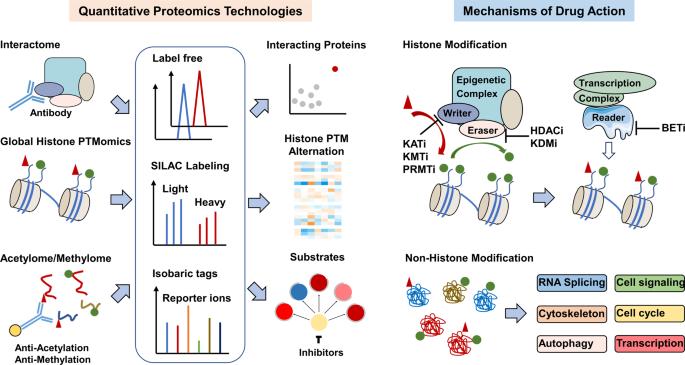Meta-PTMomics Analysis Service
"Meta-PTMomics" refers to the study of the collective landscape of post-translational modifications (PTMs) to proteins within a biological system. Unlike traditional PTM analysis, which focuses on individual modifications, meta-PTMomics provides a holistic view of the entire spectrum of modifications occurring in a given cellular context. Creative Proteomics offers high-quality meta-PTMomics analysis services, including identification, quantification and characterization of protein modifications, providing valuable insights into your protein research.
What is Meta-PTMomics
Meta-PTMomics aims to understand the global and interconnected nature of PTMs, recognizing that proteins often undergo multiple modifications simultaneously. This systems-level approach involves identifying, quantifying, and characterizing various PTMs, such as phosphorylation, acetylation, ubiquitination, glycosylation, and lipidation, across a proteome. By studying the intricate web of PTMs, researchers gain insights into the dynamic regulatory networks that govern cellular processes.

Fig.1 Schematic of meta-PTMomics (Zhai, L. et al.; 2022)
Meta-PTMomics leverages advanced mass spectrometry techniques, high-throughput proteomics, and bioinformatics to comprehensively analyze the PTM landscape. It involves the identification of PTM sites, determination of their stoichiometry, and the investigation of cross-talk and combinatorial effects between different modifications. The integration of multi-omics data, including genomics, transcriptomics, and metabolomics, provides a systems biology perspective, allowing for a more holistic understanding of cellular responses.
Applications of Meta-PTMomics Analysis
- Cellular Process Research
Understanding meta-PTMomics has profound implications for deciphering cellular signaling pathways, disease mechanisms, and the development of targeted therapies. - Disease Research
Dysregulation of PTMs is associated with various diseases, including cancer, neurodegenerative disorders, and metabolic diseases. Meta-PTMomics can uncover disease-specific PTM signatures, paving the way for the identification of diagnostic biomarkers and therapeutic targets. - Personalized medicine
It also contributes to precision medicine by elucidating individualized PTM profiles that can guide personalized treatment strategies.
Our Service
Creative Proteomics has advanced protein detection technologies and can provide customized services to researchers and scientists to help them reveal the complexity of PTM using powerful mass spectrometry technologies. Our services are thoughtful and detailed and the process of meta-PTMomics analysis service is as follows:

Fig.2 Meta-PTMomics analysis workflow
- Sample Preparation
Proper extraction and preparation of proteins from biological samples to ensure preservation of specific modified proteins. - Meta-PTMomics Enrichment
Enrichment techniques are employed to isolate specific modified proteins or peptides. This step is crucial as specific modified proteins are often present in low abundance compared to unmodified proteins. - Detection
WB, protein microarrays and LC-MS/MS are powerful tools for the identification and quantification of specific modified peptides, and they provide detection information that facilitates a comprehensive analysis of PTM. - Bioinformatics Analysis
Advanced bioinformatics tools are used to analyze data, identify specific modified peptides, and map these modifications to protein sequences. - Result Delivery
After professional data analysis, we deliver results quickly and consistently.
Creative Proteomics brings a wealth of experience to the field of protein research. Our comprehensive services and products cover the entire spectrum of utilizing suitable and efficient gateways. Utilizing our proprietary platform, we have successfully implemented many proteomics research projects. If you are interested, please contact us for more information and a quote.
Reference
- Zhai, L.; et al. Proteomic characterization of post-translational modifications in drug discovery. Acta Pharmacologica Sinica. 2022, 43(12): 3112-3129

